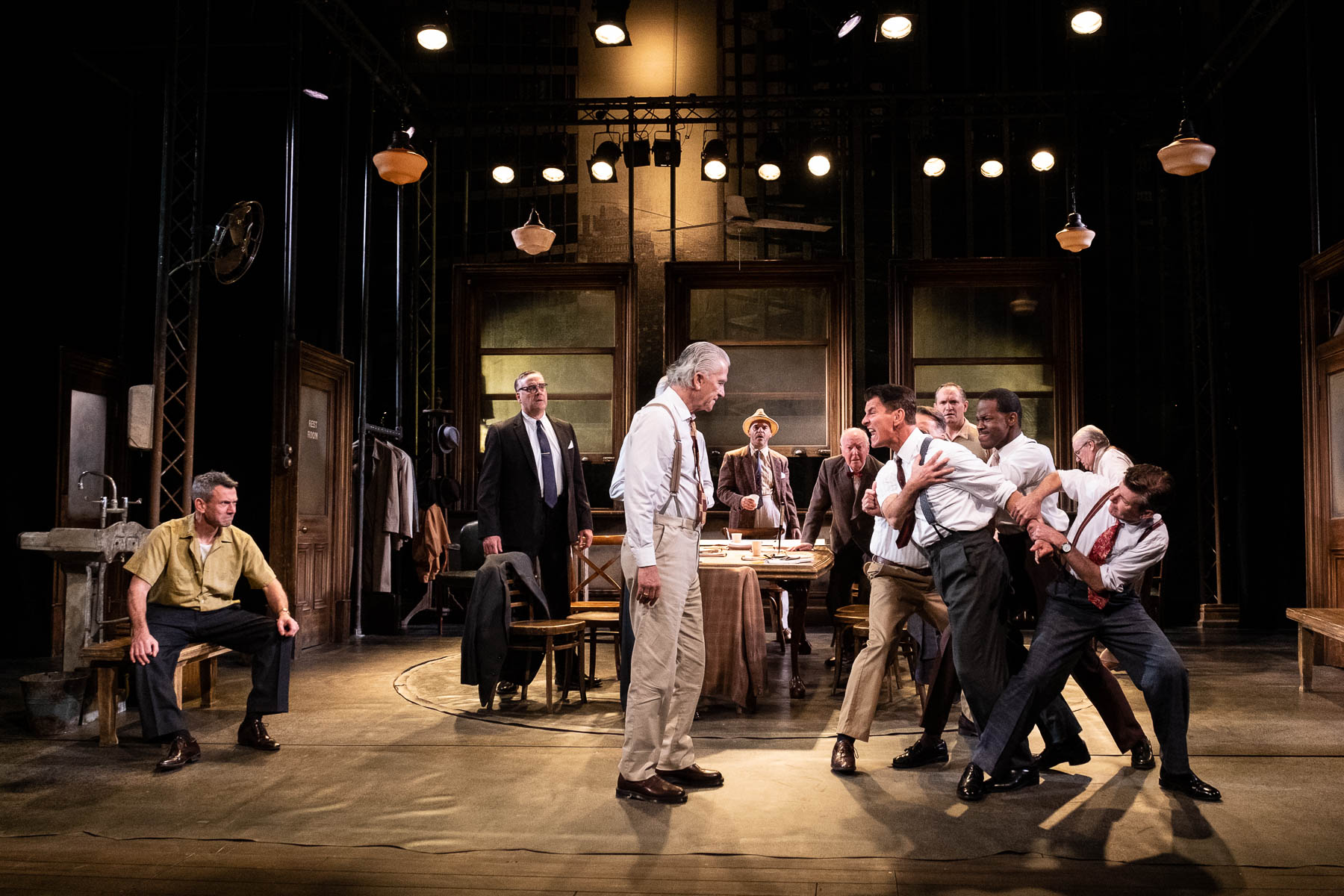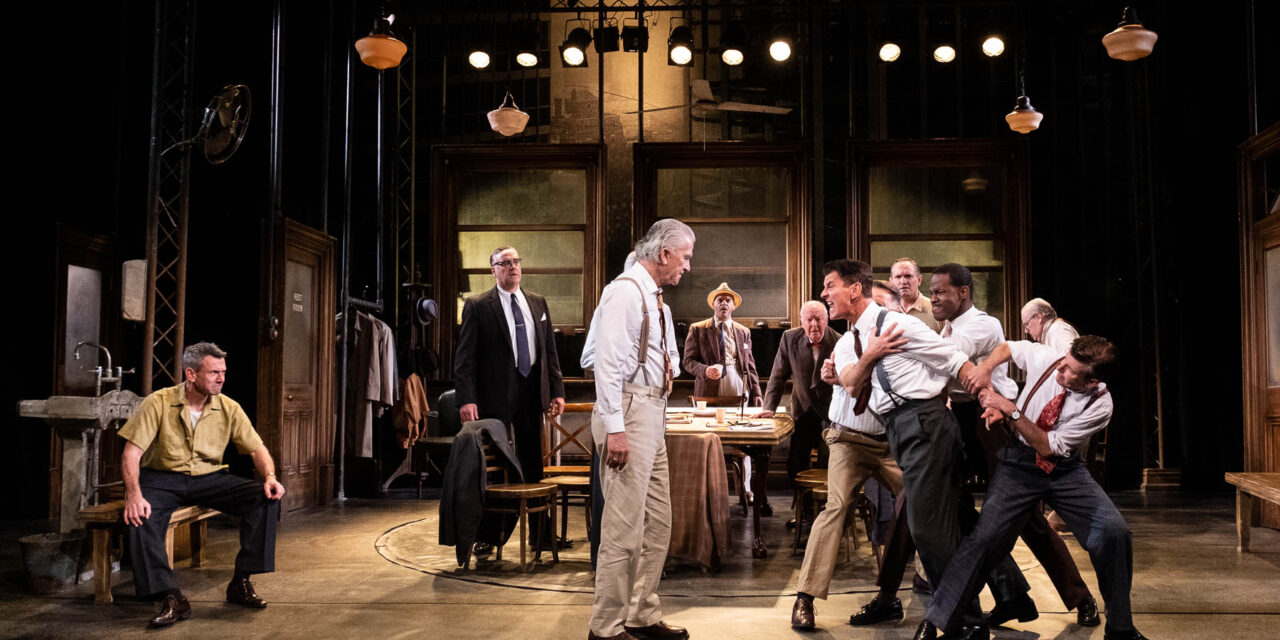
6 – 11 November
In the aftermath of two world wars, many writers sought to reflect on the repercussions of seismic global events through literature and drama. Orwell’s “Nineteen Eighty-Four”, Priestley’s “An Inspector Calls” and Golding’s “Lord of the Flies” are just three examples of post-war novels and plays which explore serious social issues in the wake of such unprecedented human loss, and the important lessons which it was felt society needed to learn. Having served in the army during World War Two, Reginald Rose felt the same impulse, releasing “Twelve Angry Men” as a screenplay in 1954. “The most important thing to write about, for me,” he declared, “is injustice”.
As with so many successful plays, a film version quickly followed, one which has become one of the most celebrated and iconic courtroom dramas of all time; both play and film remain hugely popular, a testament to the power and relevance of Rose’s compelling tale. Both tell the story of a jury of twelve men as they deliberate the conviction, or acquittal, of a sixteen year-old boy charged with murder on the basis of reasonable doubt. It is a story in which the jurors question their own morals and values, but one which also invites the audience to do the same.
Christopher Haydon’s most recent adaptation, brought to us by the late, great Bill Kenwright – who received a heartfelt tribute from Mark Goucher, Chief Executive of the Everyman, before the show began – is a taut and tangibly tense affair which successfully recreates all the claustrophobic tension of the courtroom through a forensic examination of each juror’s principles, prejudices and preconceptions. Patrick Duffy gives a strong performance as Juror No.8, the lone voice of calm reason who dares to question an almost certain conviction, but he is joined by a hugely talented and very recognisable supporting cast who bring a wealth of experience and skill to their depiction of the other eleven jurors, not least Tristan Gemmill and Gray O’Brien who ooze vitriolic bigotry throughout. The casting of Samarge Hamilton as the only black juror invites us to consider the play’s wider themes of prejudice and discrimination: interestingly, the accused’s non-white ethnicity is never fully revealed, only implied.
From the opening scene, where the jurors are perceived through a gauze emblazoned with the scales of justice, the staging is impressive: the table around which the increasingly heated deliberations take place rotates, imperceptibly, cleverly offering us a panoramic and symbolic perspective of all sides of the argument. Lighting is used effectively to create tension, spotlighting key characters at crucial points, but also serving to bring the truth into the light at others. A ticking clock ramps up the tension still further. Technically, the show excels.
For all its serious themes of prejudice, justice, identity and truth, the show does not lack humour, and yet this is thoughtfully and cleverly interspersed to alleviate the tension, rather than to trivialise or undermine the weighty social themes which the play explores. It is a powerful and absorbing performance which showcases so much of what is compelling and appealing about theatre. For a play written seventy years ago, it has perhaps never felt more prescient, its social message more urgent and important. Much like Orwell, like Priestley, like Golding, and many other writers, it is what we learn about ourselves through their stories, as much as their characters, which ensures the enduring appeal of these timeless classics.
★★★★★ Tony Clarke 7 November 2023
Photo credit: Jack Merriman


